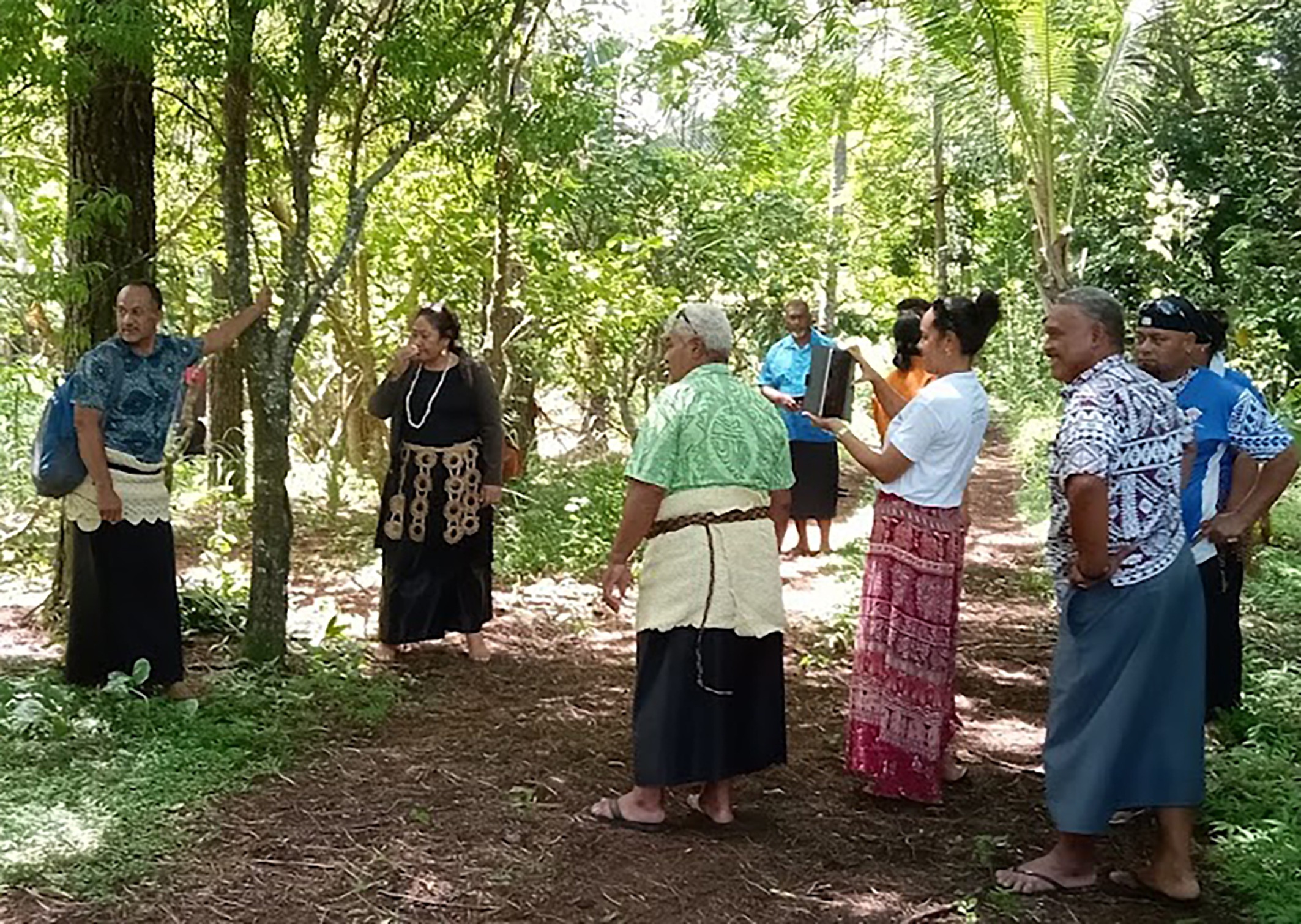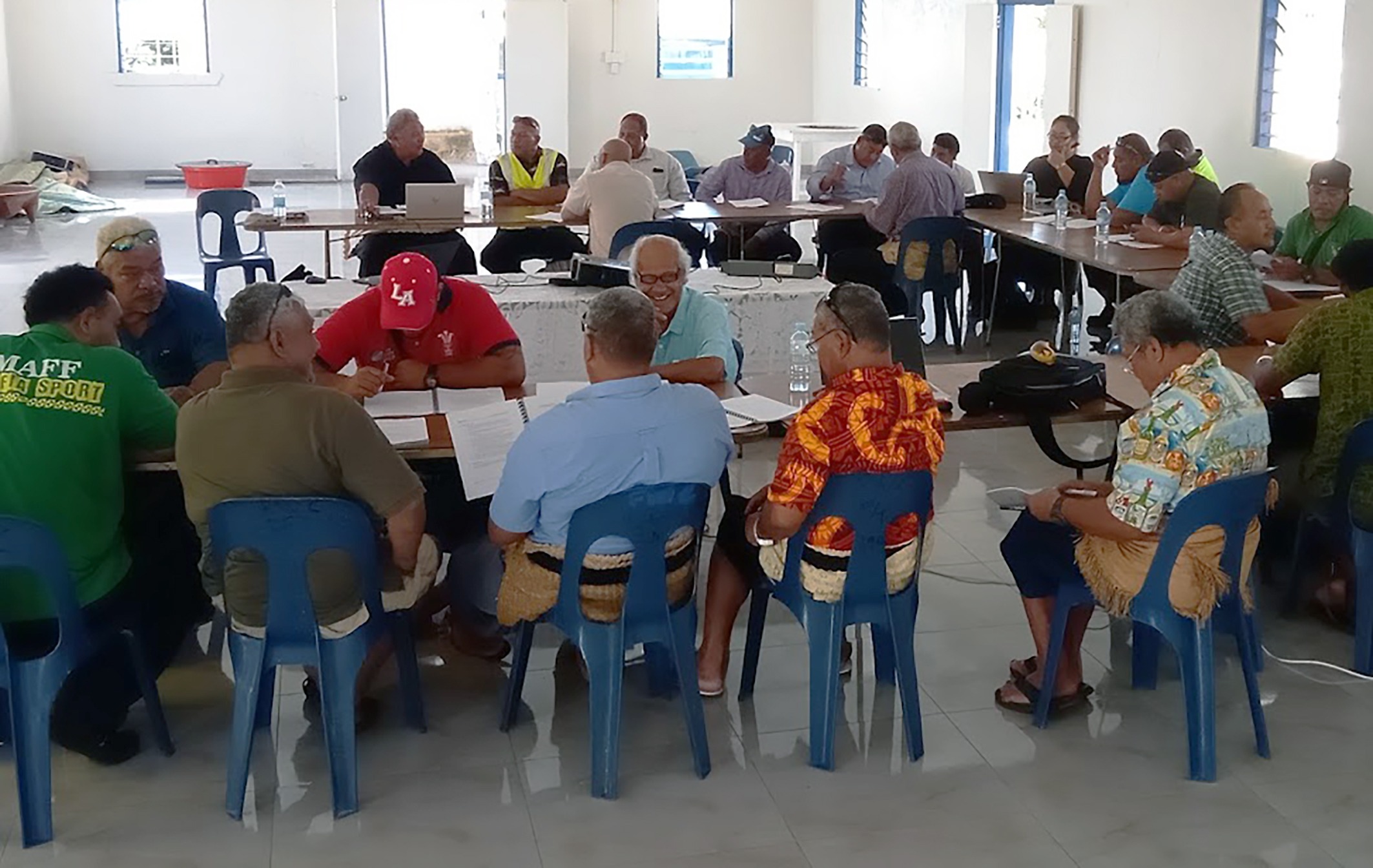

Managing Sandalwood in Tonga
March 21, 2024

The Crawford Fund Tasmania Committee recently supported training on the management of sandalwood (Santalum spp) in Tonga for 30 participants, comprising officers of the Forestry Division, Agricultural Extension Division, District Officers and farmers.
“The aim of the training was to provide advisors and extension officers with a uniform and cohesive approach to advice to landholders on the management of sandalwood,” said Graham Wilkinson, a forestry consultant who has a long history of delivering forestry training through the Crawford Fund.
“Sandalwood has the potential to make a substantial contribution to economic livelihoods in Tonga. It produces a very high value product within 20 years, and it helps to diversify and enhance the value of traditional agroforestry systems without displacing the production of food crops,” he explained.

Graham also noted that the costs of growing, managing, harvesting and transporting the sandalwood products are low and no special equipment is needed; most landholders are familiar with sandalwood, and forestry officers in the Pacific have experience and expertise in the propagation of sandalwood, including seed collection and nurseries.
“Despite its substantial potential, the benefits from growing sandalwood have not been fully achieved in Tonga because the very high value of sandalwood makes it vulnerable to theft and illegal trade, which discourages many landholders from planting it. Also the quality of the plantings is variable due to sub-optimal management, exacerbated by a shortage of uniform and cohesive extension advice from governmental officers,” he said.
The training was provided over three days on the island of ‘Eua, which is an important area for sandalwood in Tonga. The field inspections graphically highlighted the importance of ongoing management activities.
“There are adequate technical manuals on the silviculture of sandalwood within the Pacific, and these resources are relevant to Tonga. It is not the availability of information that is limiting, but the application of that information on the ground,” said Graham.
The participants identified the following issues as critical for the future success of sandalwood plantings:
- Adequate access to seedlings at an affordable price for farmers
- More proactive advice by the Forestry Division to growers on optimal management, including species, spacing, host trees, pruning and control of competing vegetation
- Formation of community-based sandalwood associations to share information and promote plantings and trade
- A whole-of-community approach to dealing with the problem of the theft of sandalwood trees, including education, better reporting and improved enforcement of the regulations.
“The participants expressed their appreciation to the Crawford Fund for the training program. They commented that they are highly motivated to promote improved management and compliance with the regulations. Rather than being seen as a burden, the regulations were unanimously supported as an essential means of improving the value and security of sandalwood resources, including access to markets that require verification of legality,” concluded Graham.




